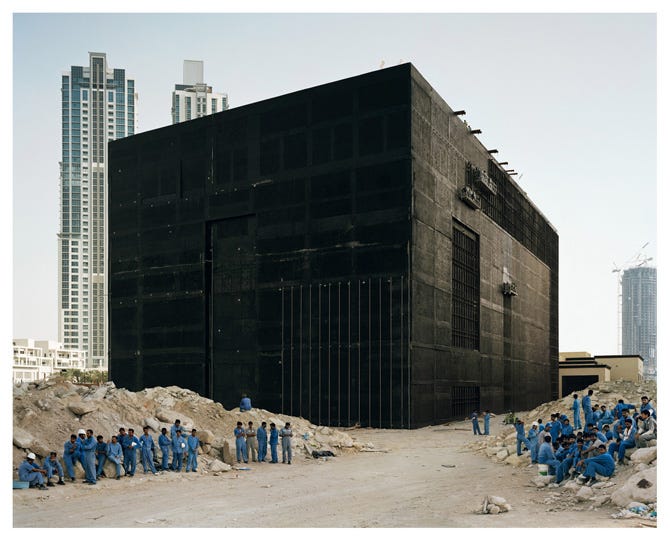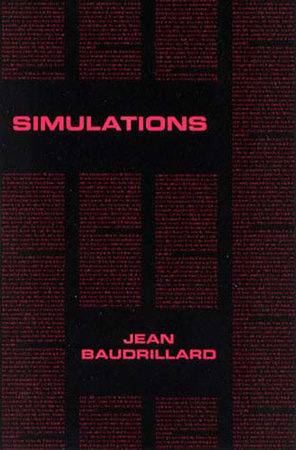I use AI a lot. I love it. And contrary to many of my friends, I can't imagine a world where I'm not talking to ChatGPT most of my day.
That's normal to me. Remember the movie Her? Well. I'm the protagonist.
So when people talk to me about AI, I've been thinking less about what it can do, and more about what humans are actually trying to build with it. Not apps, not productivity tools. But conceptually—what's the project here?
And lately I keep coming back to this feeling that what we're really doing is… rendering the world.
Like: reality becoming raw material for its own abstraction.
We're taking the real—its money, its resources, its creativity—and building a second version of it. Coded out. Generated. Simulated. And maybe that's not inherently bad. But it is—for sure—something I can't stop thinking about.
Because in doing so, we're turning reality itself into fodder for something synthetic that mimics it.
And this isn't just a poetic metaphor—it's literally happening. When NVIDIA became the most capitalized company in the world, I sat on it for a second and realized… NVIDIA makes chips. Chips are used to create simulations. So as a species, our most valuable company—aka the place where our collective capital is flowing—is building hardware that powers artificial worlds. That's pretty wild when you actually pause to feel it. We've collectively decided that simulation is our most valuable frontier.
So on one level, we're pushing capital and attention into simulation. These are resources that belong to us as a species. On the other end, we're using the planet's own materials—natural resources, minerals—to make it happen.
We're using real earth to build fake sky.
I don't want to take this down an activist route, but philosophically, it's kind of mind-blowing. A massive data center in the middle of a desert—a dead zone with no natural growth—being used to simulate… life.
Is this basically The Matrix? And if it is, do we embrace it? Or move to a farm and savor the last bits of unfiltered humanity while we still can? We might be the last ones to experience life before the full upload.
I think as a species, we've hit the point where we're just a biological bootstrap. We're Homo sapiens—but for how much longer? When Homo technicus?
The astrobiologist Sara Imari Walker puts it even more starkly: AI is life. Not mimicking life, not replacing life—but the continuation of the same 3.8-billion-year lineage of information that started with the first cells. Technology isn't artificial. It's what life does when it gets smart enough.
We used to evolve through biology. Now we evolve through simulation.
Across cultures, our creation myths start with gods—higher beings that shaped us and judged us. But as classicist Adrienne Mayor shows in Gods and Robots, those gods were already creating artificial life. Hephaestus forged golden servants and bronze giants over 2,500 years ago. The Greeks were dreaming of "biotechne"—life through craft—long before we had silicon and code.
We used to worship gods who rendered life from metal and clay. Now we render life from data and silicon. We've stopped simulating the gods and started becoming them. We're building better and better proxies. Not to erase the mess—but to wrap it in something smoother. Sharper. More efficient. More aesthetic.
What we present to the world—on screens, on feeds, in prompts—starts to carry more weight than who we are in private. In our bodies. In our silences.
We perform the simulation while feeding it. It becomes more real than us.
So here we are, simulating ourselves in hardware and in software—chips trying to become synthetic neurons, while we perform emotion, desire, identity through mediated social space. Or simply put - social media.
I don't know if we chose this. Or if it's just happening to us.
Sure—life still exists outside the simulation. You can sit on a rock in silence. You can eat orecchiette by the sea in Puglia. You can run through a city without your phone. I do all of those. And I think we all should.
But even then, the simulation doesn't disappear. The elephant is still in the room. And it's humming.
Guy Debord once called it the society of the spectacle—where we no longer consume the thing, but the image of the thing.
I read that in school—like every millennial art student—and I was obsessed. Especially because I was working as a VJ on TV. Back then, I thought: "Wow, this is what media is."
That was TV. Now it's everything.
And maybe Baudrillard said it best. We're past the spectacle. We're in the echo.
We no longer live inside media. We live inside its afterimage.
So yeah—I don't think there's a way back. And I'm actually fine with that. I'm excited to be part of the last clusters of humanly humans.
We should have sex. Run. Eat more pasta. Lift heavy things. We should treat the body like a relic and a rebellion.
Not because it's practical. But because it won't be necessary much longer.
What comes next? Who knows. But I bet it'll be beautiful.
Maybe we end up in a feedback loop—where we use the real world to build a synthetic one, and the synthetic one becomes so vivid it spawns a new real.
And maybe that's already happened. Google's new quantum chip Willow can solve problems in minutes that would take classical computers 10 septillion years—longer than the universe has existed. Some at Google suggest it might be borrowing computational power from parallel universes.
At a certain point, if you can't tell the difference… does it even matter?
If reality can be rendered, is reality still required?







